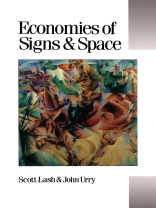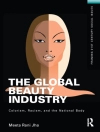This is a novel account of social change that supplants conventional understandings of `society′ and presents a sociology that takes as its main unit of analysis flows through time and across space.
Developing a comparative analysis of the UK and US, the new Germany and Japan, Lash and Urry show how restructuration after organized capitalism has its basis in increasingly reflexive social actors and organizations. The consequence is not only the much-vaunted `postmodern condition′ but also a growth in reflexivity.
In exploring this new reflexive world, the authors argue that today′s economies are increasingly ones of signs – information, symbols, images, desire – and of space, where both signs and social subjects – refugees, financiers, tourists and fl[ci]aneurs – are mobile over ever greater distances at ever greater speeds.
Innehållsförteckning
Introduction
After Organized Capitalism
PART ONE: ECONOMIES OF OBJECTS AND SUBJECTS
Mobile Objects
Reflexive Subjects
PART TWO: ECONOMIES OF SIGNS AND THE OTHER
Reflexive Accumulation
Information Structures and Production Systems
Accumulating Signs
The Cultural Industries
Ungovernable Spaces
The Underclass and Impacted Ghettoes
Mobile Subjects
Migration in Comparative Perspective
PART THREE: ECONOMIES OF SPACE AND TIME
Post-Industrial Spaces
Time and Memory
PART FOUR: GLOBALIZATION AND MODERNITY
Mobility, Modernity and Place
Globalization and Localization
Conclusion
Om författaren
His main research in recent years has been in advocating and developing a new paradigm for the social sciences, the new mobilities paradigm












